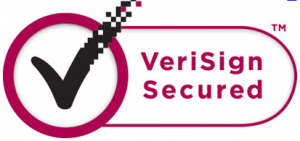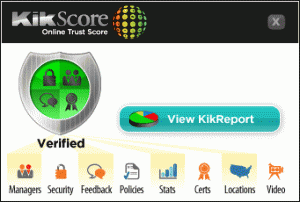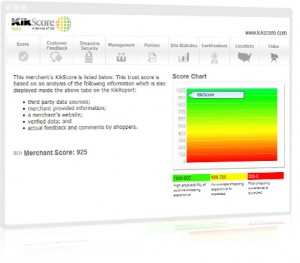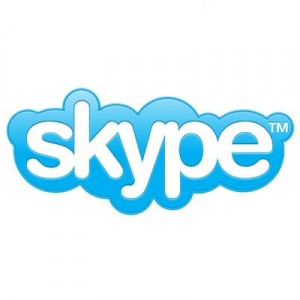Posts Tagged ‘trust’
Reach Your Best Insights! A SmallBiz Interview with Pierre DeBois
Monday, December 5th, 2011
Today’s KikScore interview features Pierre DeBois, founder of Zimana, a web analytics service. In this rapidly changing e-commerce environment, Pierre is instrumental in helping other small business reach success through his analysis of their web analytics and his assistance and advice for marketing and social media strategies. I had a pleasure talking with Pierre and learned a lot, so I hope you all share similar benefits from reading what he had to say.
Tell us about Zimana and who you focus on serving?
Zimana is a web analytics consultancy service for small businesses that are at a unique stage of operations, having launched their businesses that rely on analytics data. These businesses require marketing optimization but do not have enough time determining their marketing effectiveness and aren’t ready to reach a larger analytics firm. I analyze their analytics data, ranging from basic keyword analysis to website traffic exploration, and then I help them develop an optimizing marketing strategy with projections. My clients encompass a wide array of small businesses, from mom and pop companies to businesses that built their firm around a particular platform with numerous employees.
What prompted you to start Zimana?
It was very accidental; my original idea was that I wanted to work with small businesses that needed help with their financial data. I found out that a lot of the time these businesses tend to seek financial help, but it’s often too late to implement the advice. Therefore, that doesn’t strike me emotionally as a way to be helpful. So back in 2007, I was working for a government contractor firm in Huntsville, Alabama. The firm was determining if potential clients were reviewing products and services at the company website. I researched and discovered the measurement solution Google Analytics. I used my own resources and vacation schedule to undertake the training on my own. I then worked with the web developer to implement site content changes. The end result was successful and identified traffic flow through the site. It helped the firm place a value on their marketing budget. That was my first taste of web analytics though it wasn’t until 2.5 years ago when I launched Zimana. It’s been great and fun, though still very challenging especially due to the economic environment we are in. But the responses have been positive.

What was one of the biggest challenges you faced and how did you overcome it?
Living in New York is a catch-22; though it is the best place to meet and network with people and find good resources, it is economically straining to live here starting out. It is also tough to follow up with customers in the actual city, as opposed to other locations. When living and working here, you learn how resilient you have to be and it forces you to be efficient. While the fast-paced, business environment makes it hard to initially make a living, it forces you to remain focused and more diligently.
As a hub for business, being centered in New York also allows me to track clients outside of New York; one of my best clients is SmallBizTrends. Though based in Ohio, I conduct a lot of their monthly analysis. Moreover, being in NYC has helped me to create many business book reviews for the book segment and provide up-to-date analytics ideas that will be beneficial for their future.
How do you advertise yourself to get more clients? Do you make use of tools like social media?
Yes. Social media has helped me tremendously, especially through Twitter as I have attracted some of my followers through my tweets. In addition, though accidental, my writing has had a huge influence on gaining more clients. What started as being just for fun doing book reviews evolved into writing analytics articles. I’ve written articles for many different business sites, including AllBusiness.com, Pitney Bowes Smart Connections series, Business Agility, and AllAnalytics.com. The posts have helped me a lot, expanding my online exposure and clientele base. A great challenge has been balancing my time for writing and managing other business functions. I had not expected the writing to take the direction it has. In general, client referrals and social media marketing have been the most beneficial for me, with carefully placed and timed ads as bonus exposure. I am a big believer of using analytics to figure out which marketing outlets actually work, so that has helped me tremendously of where to focus most of my attention.
Have you had any trouble proving your business’ credibility and legitimacy to potential customers and website visitors?
Yes, there have been times and I think it’s in a very weird catch-22. In my business, the accountability issue is in the beginning; there are certifications that analytics practitioners must take and my qualifications definitely help. Though at the same time, there is a level of education that is required on part of the customer. The main customers believe that analytics is only for SEO and that’s not the entire case. So the challenge becomes that an analyst can be used for both online and offline marketing functions, though it depends on the organization, and therefore I must educate the customer enough and provide them with enough information that they will be comfortable doing business. Sometimes it works and sometimes it doesn’t, but most times people are appreciative of what you try to share with even if they don’t quite have the budget.
In terms of being legitimate, what’s helped me is dealing with the right customers and not trying to deal with those that are uninterested. Only once or twice have I had to deal with a relationship that wasn’t right, but as a business owner, you have to hold out and fight for the ideal customer. Once you find the right one, then credibility will come into play. The use of social media can be utilized to reinforce that credibility; in order to effectively use social networks, you have to focus on keeping in touch with specific people and make the most of the contacts that you have made.
Based on your expertise, what two things do you think small businesses should be doing concerning online marketing?
First, there needs to be more of a coordinated effort between digital properties (websites, paid searches, social media) and how you market your business offline. There are now studies that are proving that when you gain a customer, that customer has researched your business online and then decided whether they will do business with you. Lots of small businesses do not coordinate their online and offline efforts well, but they need to think holistically about how they market themselves and then track that, which is where the analytics comes into play.
Second, based on my expertise, businesses need to begin thinking about more than search engine optimization. With the emergence of social media, there is more of a need for a combination between social media and search, plus some level of digital marketing, whether it is paid ads on Google or banner ads on Facebook. There needs to be an increased effort beyond search to touch upon the customers and engage them. Businesses are aware of Twitter and Facebook and other networking communities, though they often do not make a dedicated effort to effectively use them. Going beyond SEO, some type of paid search or ad, coupled with social media, will help businesses convert customers on the sidelines as an ongoing customer.
What trends do you see in the business world that you think are important for small businesses to take note of?
A rising trend in the small business world is the use of cloud services. I support these services whole heartedly because it makes it easier to manage a team, whether you’re an army of one or 20. They create value for the services you have and permit more efficient management. I’m finding that the businesses that struggle have not thought in terms of simplicity; For example, one business never thought of instituting PayPal on their site because they didn’t use credit in their operations. That doesn’t mean that your customers don’t. Most businesses are too focused on their main product or service and therefore they do not think about all the underlying activities that would be essential. You don’t need to have a desktop to quickly search for information, so the challenge for small businesses is not only having access to up-to-date technology, but deploying it in the best and easiest manner for conducting your business.
Speaking from personal experience, the people who helped me the most were freelancers. One lady designed my website and also developed my hand-drawn logo into something very unique. Another was a photographer whose photos of me grabbed the right attention. I learned many different tips from many sources, ranging from billing ideas to learning to focus on the big picture as opposed to the little details. The biggest thing is to learn from others how to conduct business efficiently, so you are working to grow your business and “on” your business, not just “in” it.
 How do the folks at Zimana let loose after a busy day working?
How do the folks at Zimana let loose after a busy day working?
For me, I’m a big fan of The Big Bang Theory; I love it and think Sheldon is hilarious and the best television character in years. I watch a little Big Bang Theory and football, and I’m good! I still love automobiles like I did growing up so I read up on cars quite a bit. Pretty much besides that, I just try to keep up with my close friends and family. I haven’t had as much time to relax as I’d like to and for the most part, my business is my time. In addition, I talk a lot with other small business owners, which is both informative and also energizing.
Do you have any parting thoughts for our readers and the small business community?
Stay driven and keep your faith. If you are in any struggles, keep your faith and make sure every day spent on your business is actually productive; business owners spend too much time talking about their business, as opposed to working on it and helping it grow. Using your time efficiently is necessary, as well as networking and making sure that you are learning what needs to be learned to stay current with your business and surrounding technologies. At the end of the day, you need to be driven to put all of the pieces together and keep your business moving into the future.











 As cybercriminals become more advanced and efficient, all businesses must recognize and prepare for the imminent threats of online hackers. The issue of cyber-attacks has made its way to the Senate, debating the amount of power the president should have in dealing with cybercrimes (Full story
As cybercriminals become more advanced and efficient, all businesses must recognize and prepare for the imminent threats of online hackers. The issue of cyber-attacks has made its way to the Senate, debating the amount of power the president should have in dealing with cybercrimes (Full story 




